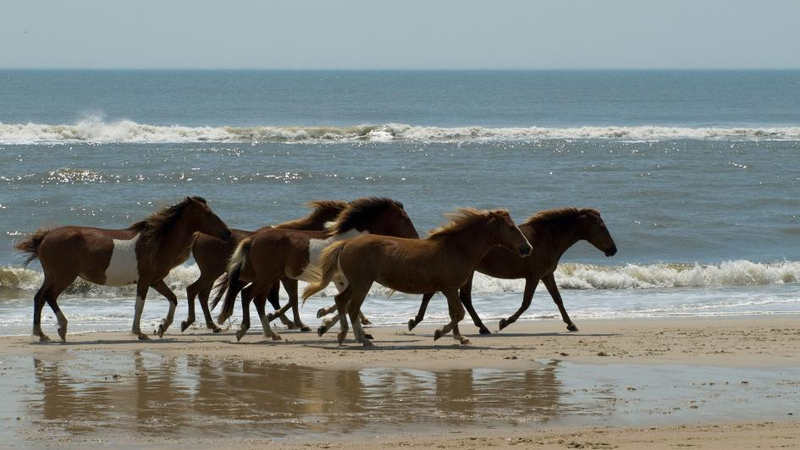
AKIPRESS.COM - In the most technical sense of the word, truly wild horses no longer exist on Earth—at least that's what a new study argues.
The research analyzed the family tree of a type of horse called a Przewalski's horse that has long been thought to be the only remaining wild horse group in the world, Nat Geo reported.
When researchers tested their DNA and compared it to the bones of ancient horses, they found the Przewalskis were not wild as previously believed, but feral, meaning they descended from domesticated horses that later returned to the wild.
The species (or sub species depending on which scientist you ask) has long been the focus of conservation efforts striving to save what was thought to be the last "truly wild horse species."
Major scientific institutions like the Smithsonian Conservation Biology Institute's Conservation Ecology Center have worked to reintroduce scarce Przewalski's horses into Chinese nature reserves.
Scientists previously thought the Przewalski's horses were a wild species native to the Eurasian steppes. They were officially declared "extinct in the wild" in 1969, and today, there are still only about 2,000.
Instead, they found the horses descended from one of the earliest known groups of domesticated horses, called Botai horses, found in northern Kazakhstan 5,500 years ago. It was a surprising find for the research team. Archaeologists had been hoping to prove Botai horses were the ancient ancestors of modern domestic horses.
"I was confident soon after we started excavating Botai sites in 1993 that we had found the earliest domesticated horses," said Sandra Olsen, a University of Kansas archaeologist who led Botai village excavations, in a statement. "We went about trying to prove it, but based on DNA results, Botai horses didn’t give rise to today's modern domesticated horses—they gave rise to the Przewalski horses."
To reach this conclusion, researchers sequenced the genome of DNA found on 20 Botai horses and 22 other ancient Eurasian horses. They then compared this to genomes from other ancient and modern horses.
Their results, published in the journal Science, found that these early domestic horses gave birth to now feral Przewalski's.
